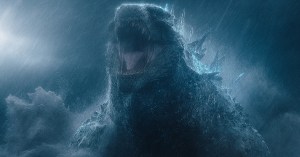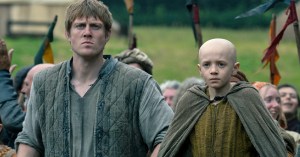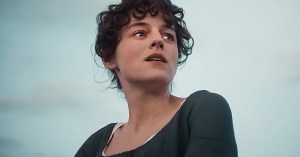Henry Rollins’ Five Favorite Films
by Kerr Lordygan | December 18, 2015

Getty Images / David Livingston / Stringer
Henry Rollins, the punk rock legend and Black Flag singer who surprised many by bringing a new audience to the art of spoken word, has so many sides to him that it’s hard to pinpoint him as any one thing. He has been a radio personality on Los Angeles’ KCRW, a regular columnist for publications such as LA Weekly, and is known as a public activist. As an actor, he’s made cameos in many films and TV series and has been a regular on shows The Legend of Korra and Sons of Anarchy.
His new film, He Never Died, masterfully tells the story of an ancient character known to most of us who, well, never died. But this one cooks up brilliant comedy and wonderful characters and relationships that can’t normally be found in your typical vampire film.
Rollins meticulously chose his Five Favorite Films to share with us, and here they are:
 87%
87%
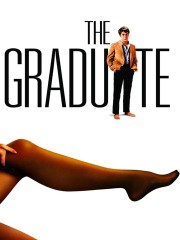
The Graduate directed by Mike Nichols. It’s just a perfect film. And it was, I think, the first non-student real film for Dustin Hoffman. It’s just a beautiful, perfectly written… perfectly shot, perfectly acted film, where you have Dustin Hoffman who has bedded both Anne Bancroft and Katharine Ross and he breaks up the marriage. I saw it as a little kid because I lived with my mom and she liked to go to the movies. She couldn’t always get a babysitter and so now and then I would get taken to films that were quite adult. There’s not necessarily nudity, because there doesn’t need to be. The thing is so well written; the adult themes and just how screwed up adults are is on full display in The Graduate. You can tell all these people are just so damn talented, and you look at a young Dustin Hoffman and you go, “Damn, man. Look at the career you’re about to have, dude. You’ve got it.” His talent was just so huge yet so innate in that he’s not gonna fail. He’s one of those people like, “Man, you were born to act.” I’ve tried to get to Buck Henry to get him to tell me stories about The Graduate and I’ve hung out with him a couple of times. And I’m like, “You wrote The Graduate!” And he’s always very funny and kinda belligerent to me, “Ah, shut up… Rwagh, Rwagh.” I’m like, “OK [laughing].”
RT: He didn’t tell you anything?
No, no. He just said,”That’s a long time ago, who cares?” I think he’s having fun not answering me. I’ve tried on two different occasions to get him to talk to me about The Graduate. But it’s kind of part and parcel of the films that were happening in America in the late 1960s and 1970s where there’s just so many great scripts and great acting. Hardcore, rip-your-guts-out acting, stellar performances, great lighting. A lot of natural lighting in 1960s and 1970s films, while now everything is just so well lit, it just looks too good. There’s all these things like Serpico and The French Connection where it looks almost indie. You know, kinda grungy. And you’re like, “Damn, man. This is really moving me.”
Anyway The Graduate is that. I just remember the moment, as a little kid, watching when Dustin Hoffman kisses Anne Bancroft — and because he’s so nervous about doing it– and she’s inhaled this cigarette, and he doesn’t know that she’s holding back two lungfuls of tobacco. And when she exhales it, [she] doesn’t lose a beat. You can tell that she’s in charge. That kinda acting, that kind of scripting, that physicality — you come with that. You figure that out in that moment and you make that something really amazing.
Also there’s that scene at the end of the film when Hoffman and Katharine Ross are at the back of the bus. You know, they’ve eloped. They’ve ruined this marriage. And they’re sitting back there and they smile for a minute and then you see them both kinda go away into themselves, like maybe, “We’ve really made the wrongest move of our lives.” The way that that camera locks off and just sits on them as they look at their future. Good Idea? Bad idea? Horrific idea? Hopeful idea? They basically run their whole future, and that’s such a brave thing to do in a film because it’s real… You never know, that relationship might be over in 48 hours. She might go running back to the groom and have a dull ordinary life. So that’s a film that stood out to me as a young person, but I didn’t even understand why it did because I was too young, but then I saw it repeatedly as an adult and went, “Wow, what a beautiful piece of work.”
 100%
100%
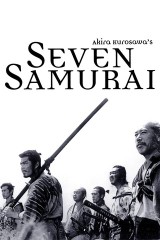
Here’s another one: Seven Samurai. The great Akira Kurosawa. He’s my favorite director and a lot of his films featured my favorite actor Toshiro Mifune. I never understood a single word he said, but the force and physicality of Mifune [was] just like a damn hurricane on a screen. In Seven Samurai, this epic film, there was a scene where Mifune’s character — he’s drunk — gets hit in the head. Someone whacks him with a stick and her just comes roaring into this scene like, “Who hit me?!” And he’s hilarious and crazy and you find out by doing some homework that guy never took any acting; he just walked into an audition and said, “You need an actor? I’ll act.” He was just this raw, crazily talented guy. I became fascinated by Kurosawa many years ago on a lot of levels — the way he would light scenes, the way he would shoot things, and the fact that he would use many of his actors over and over again. Obviously, Mifune repeats all throughout Kurosawa’s career, and also Takashi Shimura is in this film, and he stars in a beautiful Kurosawa film called Ikiru, which means “To Live.” It’s one of Kurosawa’s more melancholy introspective works. It’s just a beautiful film. Every time I’ve watched it it always moves me. And in Seven Samurai, there’s so much kinda cop-buddy film — you’re like, “Wow, that’s where they’re gonna get Lethal Weapon, Fistful of Dollars, Hang Em High.” I mean they’re just gonna get so many big movies from Kurosawa.
There’s a guy named Seiji Miyaguchi who’s the master swordsman in Seven Samurai, where he goes out on a mission just on his own and comes back holding some dead guy’s gun. A man with a sword takes out a guy with a gun. He just takes the gun, throws it on the ground, and I think he says, “Got two.” He just sits down and goes to sleep. This guy puts his face on his knees and goes to sleep like, “Been a rough night. Killed two guys. Oh, and here’s this gun thing. I don’t know how it works.” There are so many killer moments in Seven Samurai. Meanwhile it’s this sweeping epic [of] good versus evil. And the kind of neutral victory at the end where four of the seven samurai are dead; the farmers are just notably ungrateful for having had their assess saved by these seven selfless samurai. They’re basically rōnin — they are masterless samurai. And they go right back to their crops like, “Thanks, dude.” Really? You barely noticed what sacrifices were made, and you’re all cowards in the face of aggression. And these guys gave you everything and died doing it. There’s a lot of your own life that you could read into that. And I think Kurosawa did that magically from film to film, where he’d tap into human feelings quite often.
[Kurosawa] was just a master movie maker. Master writer. Master cameraman. The dude knew how to make a movie. And Seven Samurai is just a great example of it. It’s not my favorite Kurosawa film. I just think it’s such an amazing piece of work. It’s one of my favorite films just because it’s a massive undertaking. And in my top five I did not put in a Werner Herzog film, which I’m rethinking. I probably would have put in either Fitzcarraldo or Aguirre, the Wrath of God. And so, Herzog gets an honorable mention. But moving on.
 95%
95%
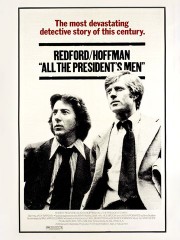
All the Presidents Men. Alan Pakula. I lived in Washington, D.C. all throughout Watergate and my mother worked for the government so she was hyper-aware of Nixon and all of this. The Watergate [Hotel] was a bike ride away from my home. It was just a building in a series of buildings that you drove by all the time. And the Howard Johnson’s where the plumbers all had their dinner before break-in? I used to eat at that Howard Johnson’s. This was a local story for me. The Woodward and Bernstein book is a read and a half, and I’ve watched that film I don’t know how many times — it is just perfect. I watched it like 10 days ago. I watched it on the Drake Passage on my way to the Antarctic peninsula. That’s the last time I saw it, like three weeks ago. It was then as it is now — a beautiful piece of work. It’s suspenseful.
Again, there’s Hoffman. I guess I come off as some massive Hoffman fan. It’s merely coincidence, although I do think he’s great. Him and Redford together are just amazing. And again you see the genius of Hoffman. You see just how ready-to-go Robert Redford is as an actor. Handsome, leading guy, believable as hell. And that whole cast — I just love seeing older people in films who don’t necessarily look good, but they’re good actors. And that the entire weather-beaten, hard-chewed staff at the post that were cast in that film. They sit around and have those meetings, “Well screw that; what d’you got?” They’re just these tough newsmen, and I love it. They took down Nixon, these two young guys. I hung out with Bernstein; he’s just a true maniac. It’s an honor to hang out with him. I said, “Man, it’s an honor to meet you.” And he said, “I’m gonna tell my son that and boy, he’s gonna respect me now.” [Laughing] I’m like, “Yeah, right!”
It speaks of a huge moment in American history when every American now had proof that you cannot trust your government, that you’d be stupid to trust the government. Like yes, vote. Elect these people. But you gotta keep a very Jeffersonian jaundiced eye on every politician: the ones you voted for, the ones you voted against, the ones you say you like. As Gore Vidal said, by the time anyone gets to the Oval Office, they’ve been bought and sold at least ten times. And All the President’s Men is a case study of that. Hal Holbrook’s character, you find out 30 years later, that dude did exist. It was Deep Throat. That was a real guy. And the fact that these little clandestine meetings happened in a place I may have well pumped my skateboard by makes that film very relevant to me.
 91%
91%
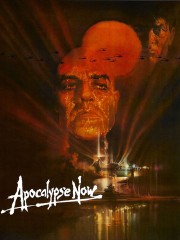
Another film is Apocalypse Now, which I’m sure every male moron you’ve ever interviewed has put in his top five. But the reason I put it in my top five is because Ian MacKaye, my best friend, and I went to go see it, first run, and we walked out not understanding what we had seen. But we walked home with, like, smoke coming out of our ears. And it’s one of those, where you’re young with no car, you get used to walking — like, “it’s only four miles each way.” And you’re so young and so stupid you just do it. Just getting snowed on. No problem. It was one of those massive walks back to our neighborhood and we just kinda walked home in shocked silence. We were, in a way, devastated, and neither one of us could tell you what that film was about. “Was it about the war?” “I guess.” So we went back to see it again later, and we were like 18 or 17. And maybe other 17-year-olds could’ve articulated it, but for Ian and I, we loved it but we were just kinda devastated by it.
As I grew older, now I’m a twenty-something, and I’m watching once a year. And I start to understand it when I start to understand the Vietnam War differently. I’m starting to understand that conflict a little more as a young adult. Then I start reading into the characters more, and the more I see it, one day I feel like I’m Willard, Martin Sheen’s character. And one day I feel like I’m Kurtz, Brando’s character. And then I join Black Flag and our tours — our van was like PBR Street Gang. The highway was the Nung river. We would just go into these hairy situations.
I’ll never forget one night, I’m in the back of our equipment truck with the backdoor kinda open, me and one of the roadies, and we’re looking at the lights of some harbor in Florida and I looked at him and said, “This sure enough is a bizarre sight in the middle of all this s—,” as Clean says when they’re going into that crazy kinda nightclub, DMZ area where Bill Graham comes out and does his amazing scene. And, Apocalypse Now lines from the film became patter between me and a Black Flag roadie, and then between members of the Rollins band, where we would speak in Apocalypse Now. When we’d go into a place where everything was screwed up I’d say, “Chris, did you find the monitor guy?” and he’d say, “No, there’s no f—ing CO here,” which is from Apocalypse Now, which means there’s nobody in charge; this place is a wreck. So, as I got older — I’m 55 now — that film is still relevant to me. And it still speaks to me on a lot of levels. Like when Kurtz says to Willard, “It’s impossible for words to describe what is necessary to those who do not know what horror means… you must make a friend of horror.” And I never really understood that line until I was involved in a murder [the murder of Joe Cole], where I was almost killed and my friend was killed. I became full of horror. And once you get that, you get it. And so I’ll never think of that line the same way again, because it so describes what happened to me.
I can’t describe what that was like to you. I can describe it but it’s gonna fall short. Unless that’s happened to you, you don’t understand what I’m telling you. You’ll only understand it in a journalistic way. Oh, right, OK, something bad happened. You don’t know the half of it, ’cause I can’t articulate it to you, and you can’t read me. And it’s what happened to all these dudes. These Vietnam vets, Iraq and Afghanistan. They come home and no one can read them. Which is shown so beautifully in The Hurt Locker. When the guy goes home and he’s preparing the meal with his wife, like yeah, “This guy got blown up.” And she’s like “Uh-Huh, cut the carrots.” There’s a complete disconnect. And so what Apocalypse Now — I finally figured it out — it’s just about insanity, which is nothing but what war is. It’s just a bunch of people being completely insane. And it captures the insanity of human conflict perfectly. It could’ve been any war.
 91%
91%
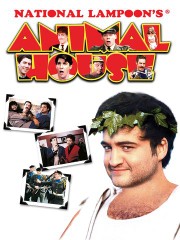
The last film is Animal House. Where I [veer] away from intense dramas. This thing is a perfect comedy, and I saw it right when it came out, as many people of my age did. It’s one of those films — I saw it one weekend; I went back to see it the next weekend and the next weekend. It’s a perfect piece of work and I watch it almost once a year. I’m no expert on it — can’t tell you the cast except for the big names — but it’s one of those things where I don’t even know if it’s any good. All I know is, I laughed in the same places, like Pavlov’s dog. “Hey, I’m a zit!” and the food comes out of [John] Belushi’s mouth — to me that is about the funniest thing I’ve ever seen. Until he does this or until he does that. And you know: “A pledge pin on your uniform,” stuff like that. It’s funny down to my DNA. You know how it is with films. You love them so much, you almost adopt them. Like if there’s a song you really like — you almost kinda wrote it yourself. Because now it’s in your bone marrow. Animal House to me is from a much happier time of my life. As an adult I’m over-serious and worried. But as a younger person, that comedy was just so effortlessly immature and funny. The humor is not the highest brow, but it’s done so well. It works on every human cliche, like the drunk wife of the dean and the dean is over-serious… That was a film I watched usually around Christmas time. Somehow, I always find it in December and I watch it and I laugh sometimes, and I find myself crying because I miss Belushi. I think he was a great talent. I’ll watch him eating the food and I laugh so hard, literally, tears will go down my face. I don’t know the guy but I spoke to him once on the phone, briefly, but I just miss the guy. ‘Cause he’s one of my guys, like Bill Murray and Chevy Chase. All those SNL people — that’s my kind of humor. It’s just a perfect low budget comedy. It’s what you do with great acting and great writing. You don’t need a budget. You just need great acting and great writing.
He Never Died is open in limited release and available on VOD and iTunes.

